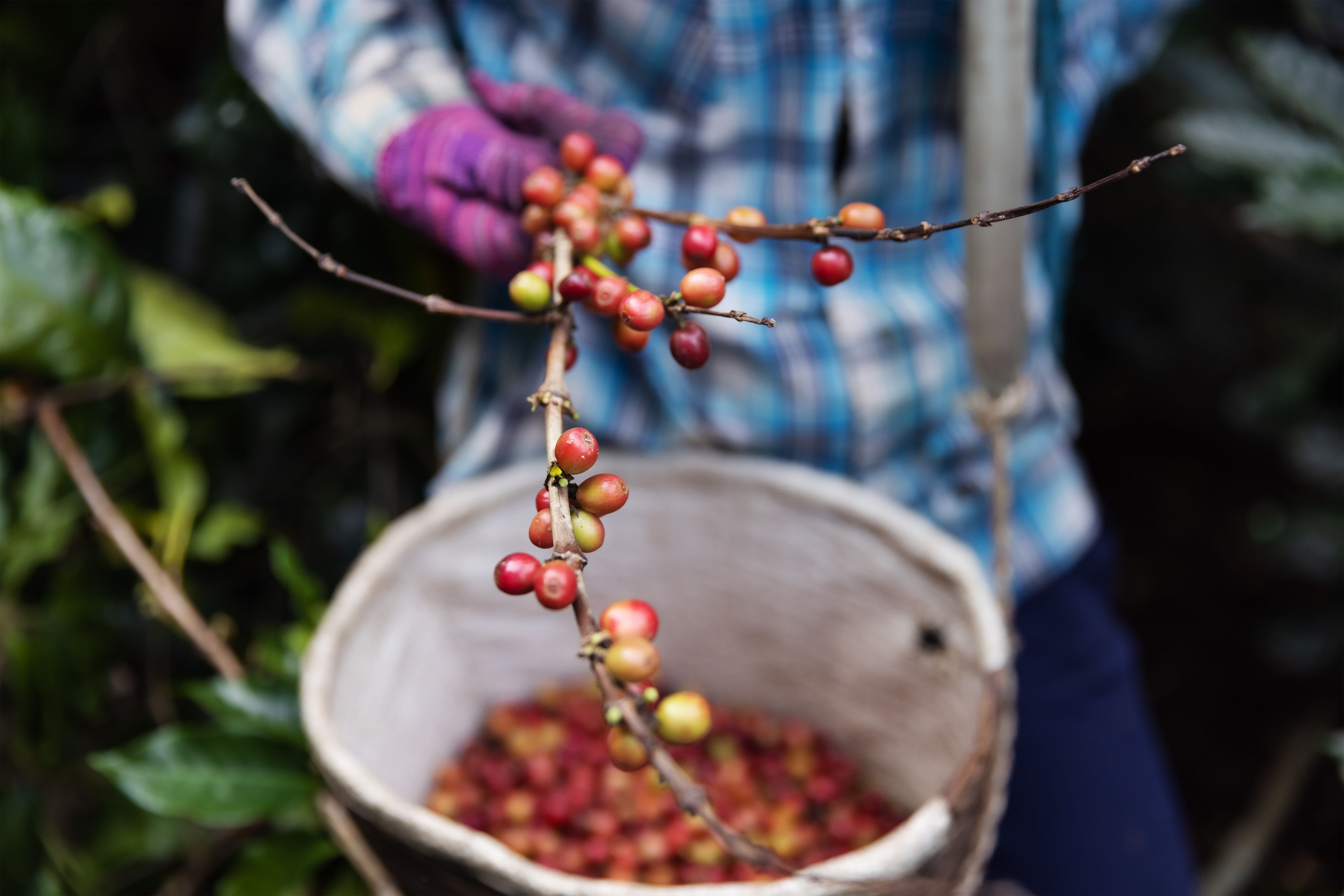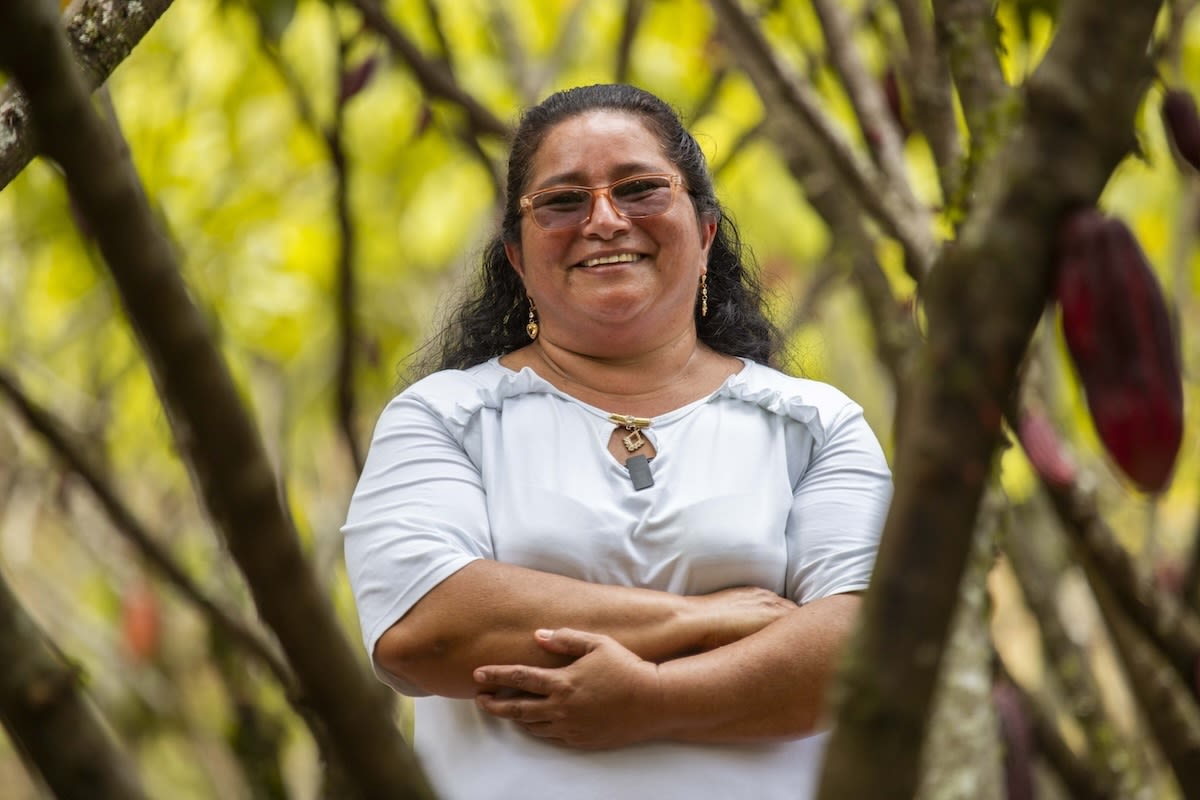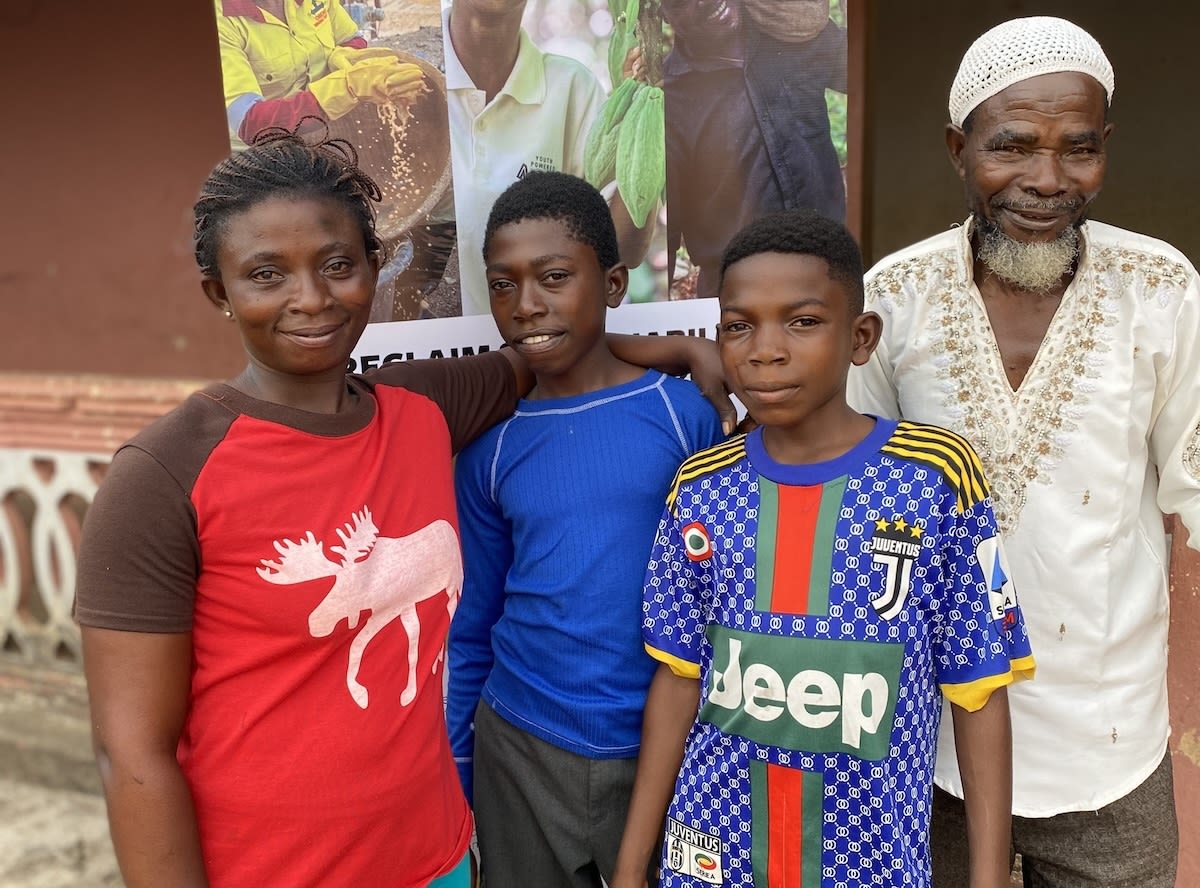SMALL FARMER ATLAS
COCOA
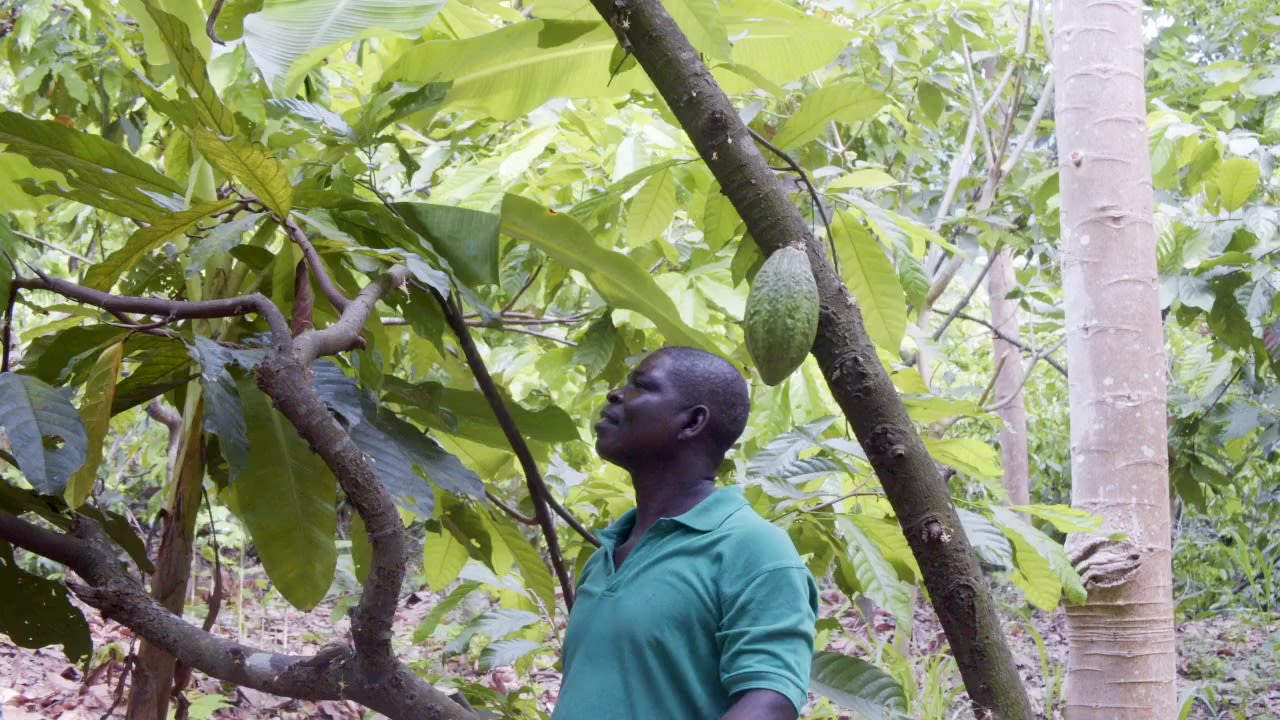
Cocoa production is dominated by small-scale farmers. Five million farmers produce 75% of the world’s cocoa. In recent years, living income has become the key objective for the cocoa sector, however it hasn’t changed core business practices so far. Paying a higher price to small-scale farmers, who produce the majority of cocoa, and improving procurement practices are critical if the living income gap is to be closed.
The Small Farmer Atlas explores the perceptions of small-scale farmers on a wide range of sustainability topics centered on three themes: prosperity, inclusivity and balance with nature.Small-scale cocoa farmers from Côte d’Ivoire, Ghana and Nicaragua are included in this report.
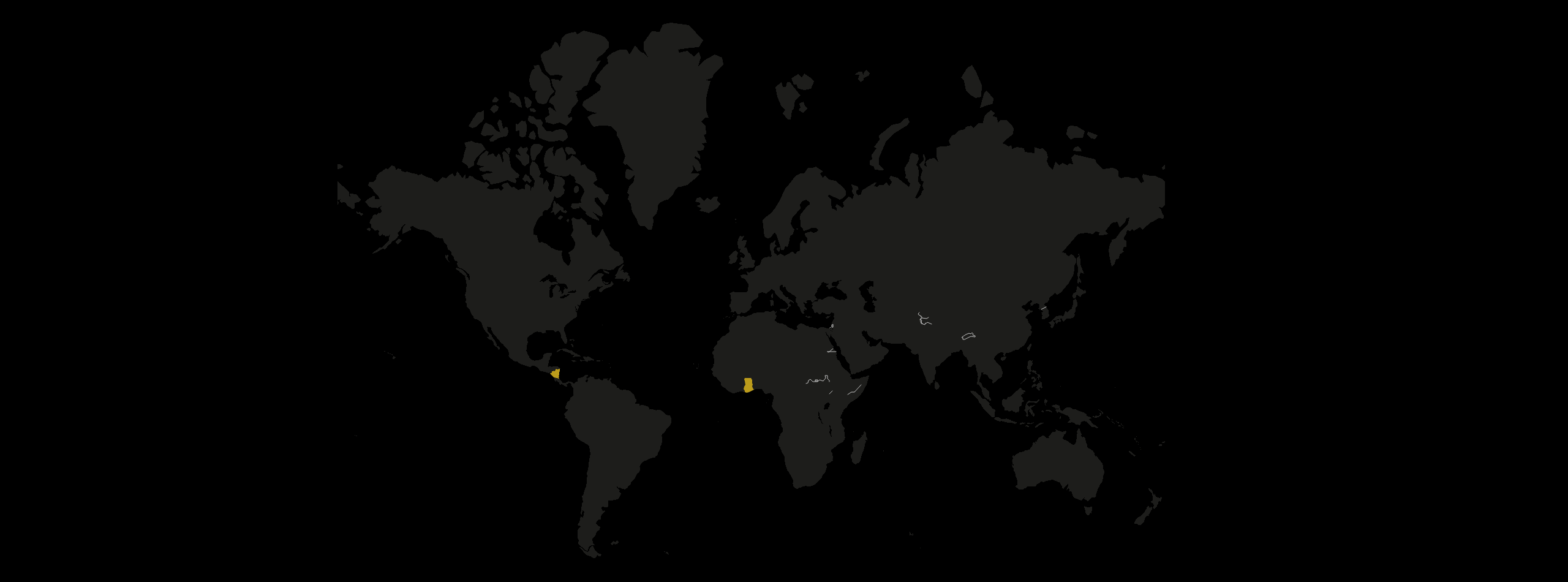
SMALL FARMER ATLAS
FARMER PERCEPTIONS Cocoa

There is huge demand for cocoa worldwide, yet it can only be grown in a very small tropical belt. Over the past ten years, global production volumes of cocoa have increased by roughly 20%. This growth has been largely fueled by enlargement of planted areas. Though demand continues to increase, small-scale cocoa farmers have little leverage in global trade of cocoa, which is reflected in the farmers’ overall perceptions on sustainability in the sector.
Results vary by country. When asked if their income is commensurate with effort, 50% of the farmers in Côte d’Ivoire and Ghana disagreed, however one third agreed with the statement. In Nicaragua, a large number of farmers disagreed.
Addressing poverty, child labor, gender inequality and deforestation are critical for developing a sustainable cocoa sector.
PROSPERITY
When asked if their income is commensurate with effort, 50% of farmers in Côte d’Ivoire and Ghana disagreed, however one third agreed with the statement. In Nicaragua, a larger proportion of farmers disagreed.
INCLUSIVITY
Substantial investment has been made in the cocoa sector to better serve farmers. Though respondents are somewhat positive about price information and market access, they indicated that access to services, inputs and credit remain difficult.
NATURE
Nearly 75% of farmers surveyed lack financial resources to adapt their farms to the changing climate; soil quality is also diminishing. Farmers are well aware of sustainable cocoa practices, however over half of farmers in Côte d’Ivoire see limited demand for sustainable cocoa.
THE SMALL FARMER ATLAS
SUPPLY CHAIN
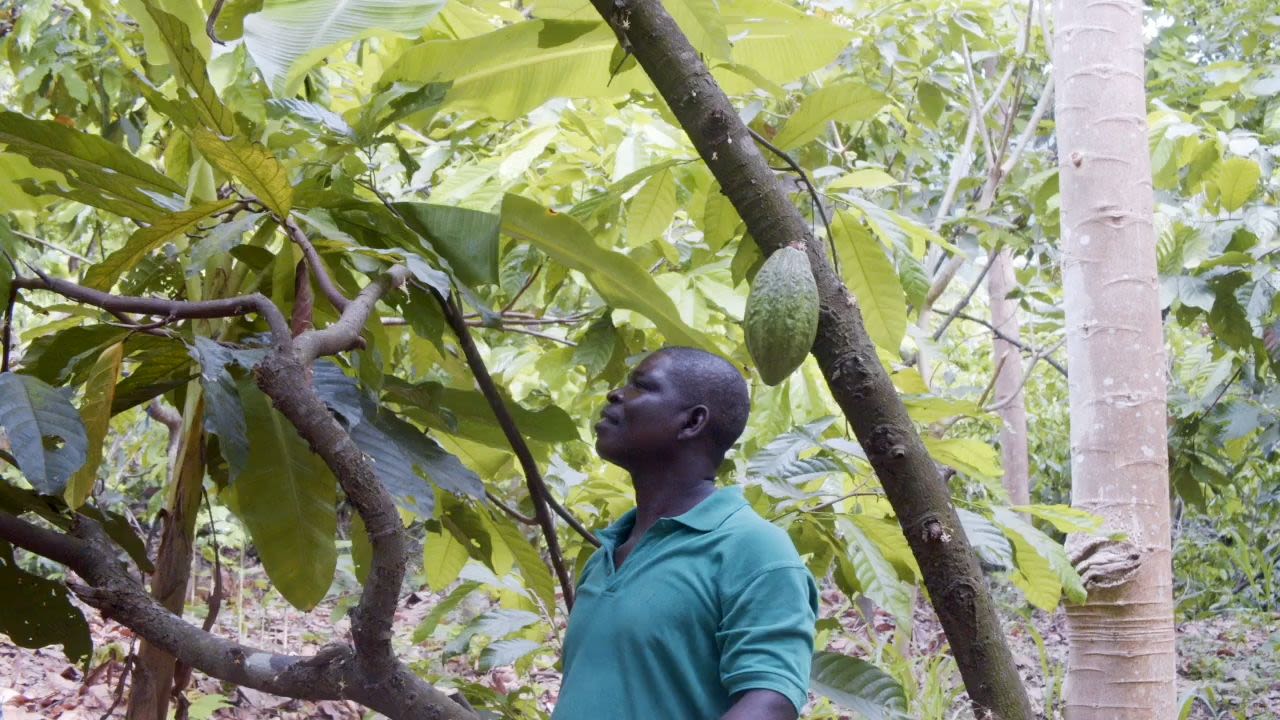
Cocoa farmers form part of a highly segmented value chain selling dried and fermented cocoa beans to individual traders or cooperatives, who sell to traders and exporters. At this stage the sector is highly concentrated. The six biggest trading, grinding and processing companies handle 4.5 million metric tonnes of cocoa beans. Globally, just six companies represent the bulk of the market for final chocolate products: Mars, Hershey, Mondelez, Nestle, Lindt & Sprungli and Ferrero. Besides Hershey (United States), all of these multinationals have chocolate confectionery production plants in Europe.
Though small-scale farmers produce the majority of cocoa they have little influence on global trade and the price paid. Governments in producing countries are becoming more assertive in protecting farmer interests in recent years.
THE SMALL FARMER ATLAS
3 QUESTIONS

Cocoa farmers in Nicaragua struggle with price volatility and lack the ability to adapt to a changing climate. While many farmers indicate receiving better treatment for producing sustainably, the lack of government support for the sector puts them at risk.
Cocoa farmers in Ghana scored the most positively among the three countries surveyed, particularly regarding adequate treatment and pricing for producing sustainably. Yet similar to the others, the ability to manage price volatility and climate shocks is very low.
Cocoa farmers in Côte d’Ivoire are more negative than the other countries surveyed. Their ability to adapt to climate change is particularly difficult, and though sustainable production has increased, most farmers indicated that they are not adequately compensated for the effort.
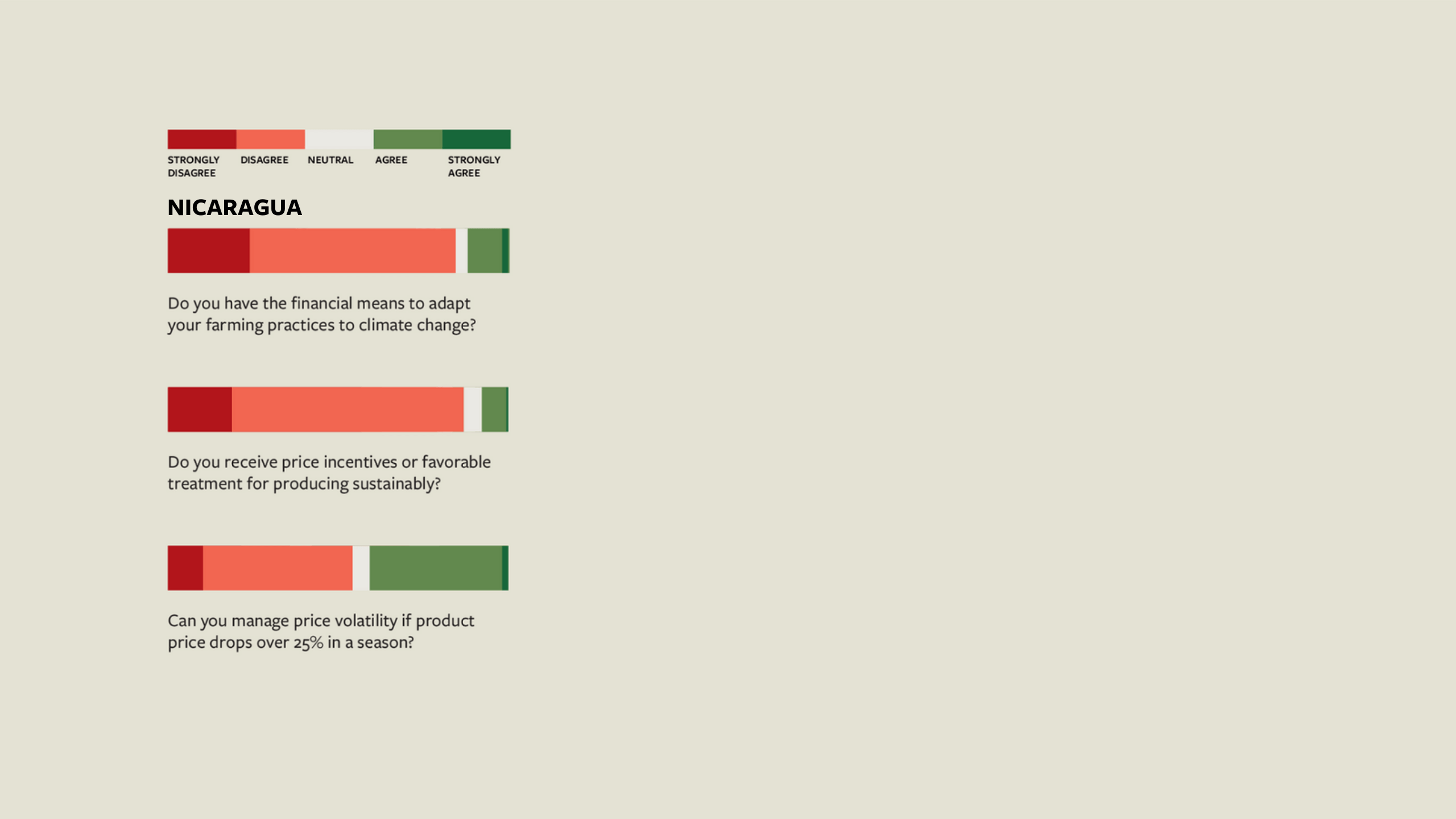
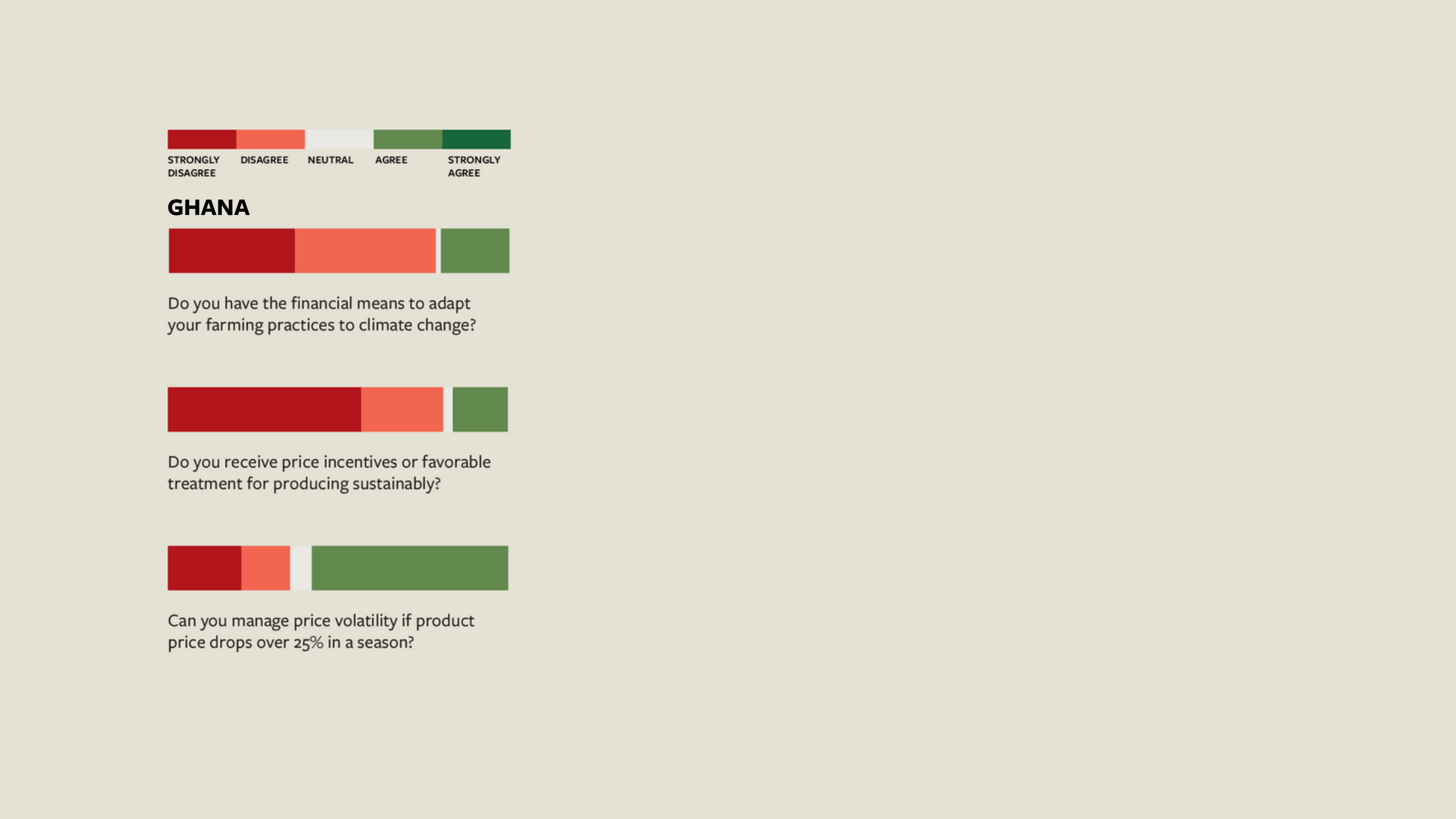
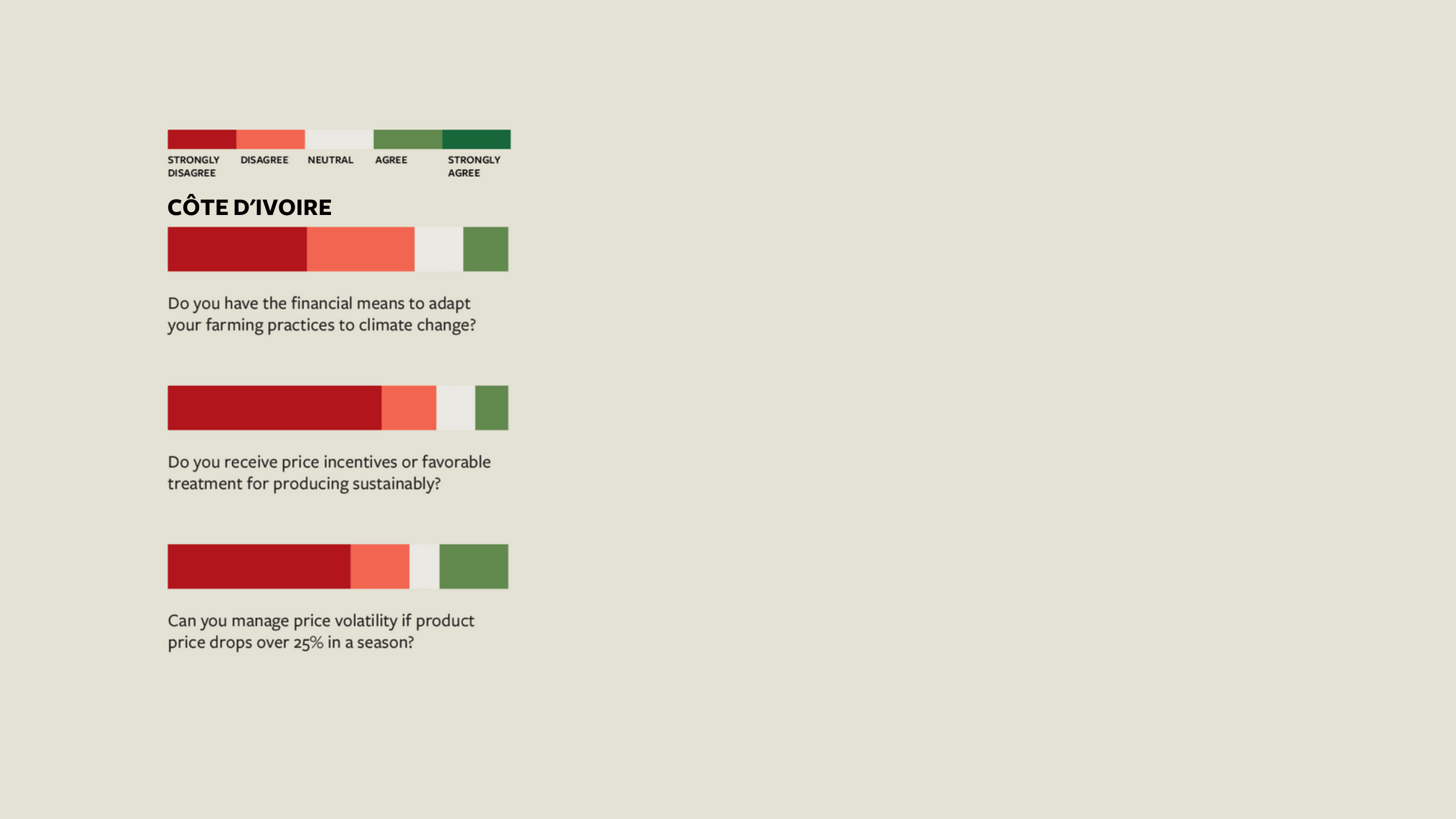
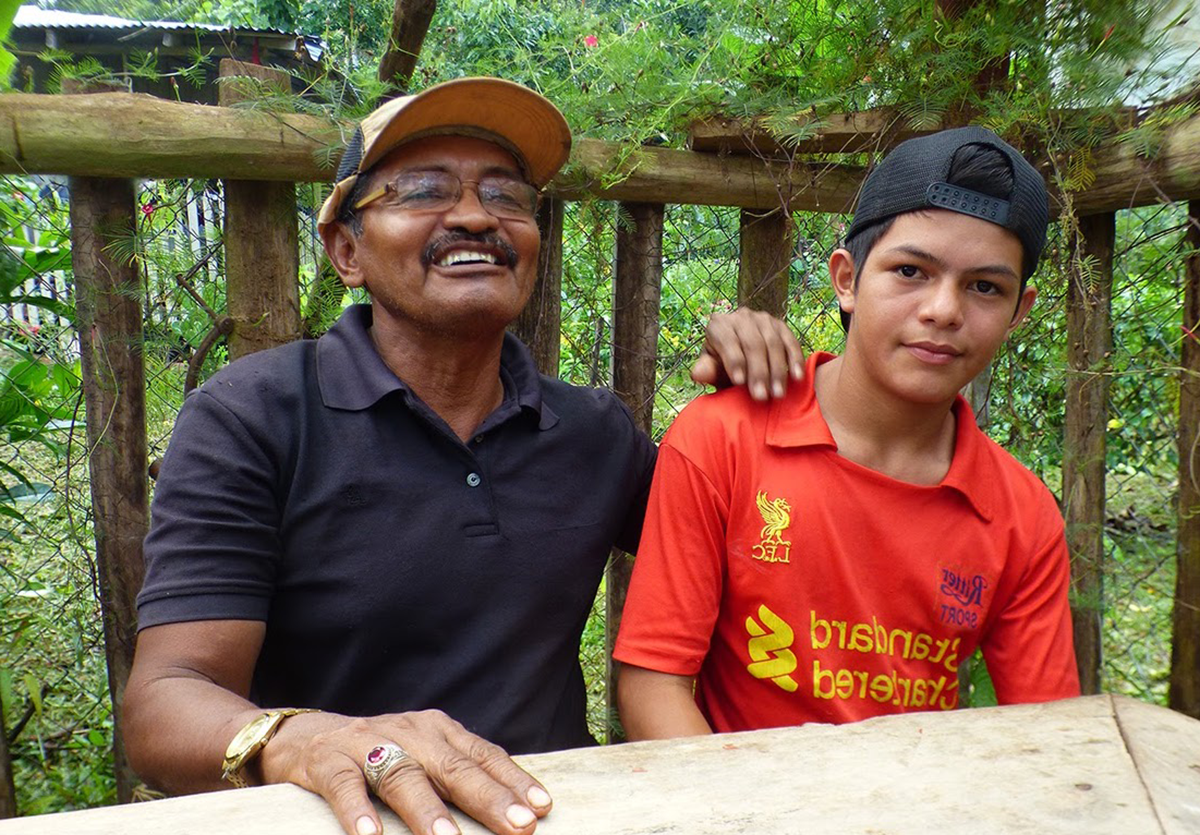
MEET SMALL-SCALE COCOA FARMERS
UPHOLDING A VISION FOR RURAL WOMEN IN COLOMBIA
When climate change threatened María Isabel's cocoa farm, she found the solution in agroforestry. Achieving climate resilience shows how tradition and sustainability can power rural development.
BREAKING THE CYCLE: A FARMER'S JOURNEY AGAINST CHILD LABOR
In Ghana’s Central Region, cocoa farmer and tailor Musah Kalamdulai once thought his children’s help on the farm was just part of family life. He didn’t realize that tasks like spraying chemicals, weeding, and carrying heavy loads could harm their health and education.

Join the discussion
Looking for further insights and ideas or just want to share with others? Join the Small Farmer Atlas LinkedIn Group.
Download the PDF
The full Small Farmer Atlas goes into detail on that current state of sustainability from farmers' perspective.
Explore the data
This website represents a small portion of the data collected. Sign up to access the Data Portal and learn more.
